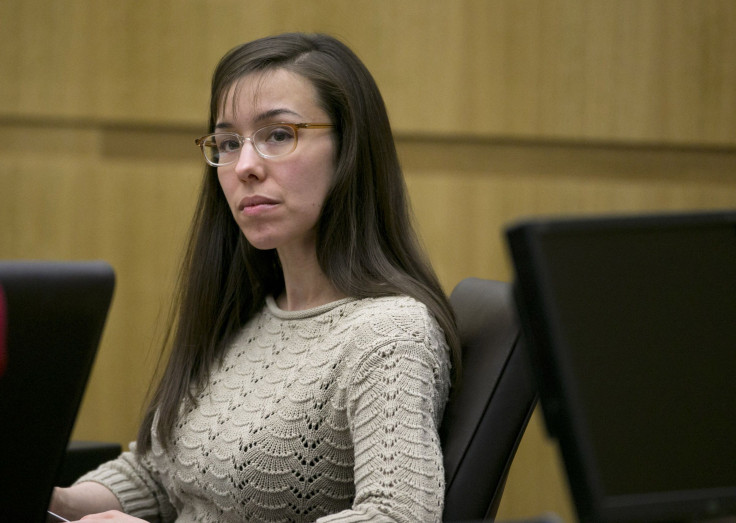
The Jodi Arias trial has been marked with multiple sensationalized declarations, from the brutal murder of Travis Alexander to the continuing antics of convicted murderer Jodi Arias and her team of lawyers, the media has reported on nearly every angle of the case and subsequent trial. However, now due to a recent ruling from presiding Judge Sherry Stephens the media has been banned from the second penalty phase, leaving lingering concerns over a possible violation of the First Amendment and dangerous precedent that may have been set.
On Monday, Stephens who is a Maricopa County Superior Court ruled that there would be no airing of TV footage during the upcoming sentencing trial of Jodi Arias. Stephens stated that there is a reason to why she disallowed all broadcasts of the trail until after the final verdict is read, "The Court is mindful of its obligation to allow public and media access to the trial." Stephens continued, "That access should not include live broadcast of the trial prior to a verdict for the reasons addressed in previous sealed proceedings. The public and media may attend the penalty phase trial each day." Despite affirming that there was a reason behind her seemingly First Amendment violating decision, Stephens confirmed that this reason is in fact confidential.
Stephens decision is most likely a reaction following the media circus that revolved around the Travis Alexander murder, however by banning the media from the second penalty phase trail, Stephens may have set a dangerous precedent. America has always honored the open courtroom forum; to be fair Stephens did state that members of the public are allowed to attend the trial each day. However, when considering the small size of the Maricopa County facilities, the number of the public in the courtroom each day is minimal at best. In addition to the ban, Stephens has stated that there will be no cameras in the courtroom, no live streaming of the trial and no clips of that day’s trial events on the nightly news, which, was decided by a reason that is sealed in court documents. So Stephens has imposed a blackout on the second penalty phase, and here’s why that’s dangerous.
What will happen if a Judge does not want the public to what occurs in his or her courtroom? Will the media cameras become uncommon in courtrooms? Comment below and let us know what you think of the media blackout in the Jodi Arias second penalty phase? Is it a violation of the First Amendment or a good precaution to ensure a jury is not influenced by media reports?
© 2024 Latin Times. All rights reserved. Do not reproduce without permission.
